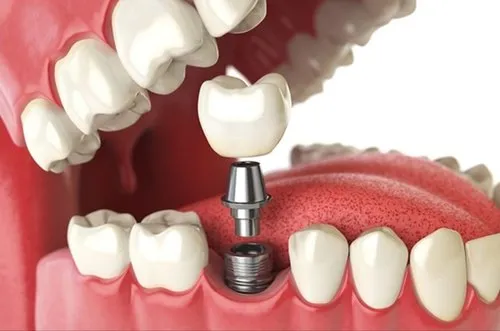
Dental Implants
Dental implants are a modern and durable solution for replacing missing teeth, offering a natural look and feel while restoring full oral function. A dental implant consists of a titanium post that is surgically placed into the jawbone, where it acts as an artificial tooth root. Over time, the implant fuses with the bone through a process called osseointegration, creating a stable foundation for a dental crown, bridge, or even a full set of dentures. This fusion not only provides strength but also prevents the bone loss that typically occurs when teeth are missing.
The procedure usually involves three steps: placing the implant, allowing it to heal and integrate with the jawbone, and attaching a custom-made crown to complete the restoration. Dental implants look, feel, and function like natural teeth, enabling patients to eat, speak, and smile with confidence. With proper care, implants are a long-lasting solution that enhances both oral health and appearance.
Open Hours
- Monday – Sunday:9.00 Am – 21.00 Pm
The Dental Implant Procedure
- Consultation and Evaluation: The dentist evaluates the patient’s oral health and jawbone density with exams and X-rays to determine if they’re a good candidate for implants. In some cases, bone grafting may be required if there isn’t enough bone to support the implant.
- Implant Placement: The titanium post is surgically placed into the jawbone under local anesthesia. Over a few months, the implant naturally integrates with the bone.
- Abutment and Crown Placement: Once healed, a connector called an abutment is attached to the implant, followed by a custom-made crown that resembles a natural tooth.

Benefits of Dental Implants
- Natural Look and Feel: Implants look and feel like real teeth, blending seamlessly with natural teeth for a beautiful, functional smile.
- Improved Functionality: Implants restore full chewing and speaking abilities, enhancing comfort and quality of life.
- Durable and Long-Lasting: With proper care, dental implants can last a lifetime, making them a durable investment in oral health.
- Prevents Bone Loss: Implants stimulate the jawbone, preventing the bone loss that typically occurs with missing teeth.
- Preserves Adjacent Teeth: Unlike traditional bridges, implants do not rely on neighboring teeth for support, preserving their health and structure.
FAQ'S
1. What are dental implants?
- Dental implants are artificial tooth roots made from titanium that are surgically placed into the jawbone to support a crown, bridge, or denture. They function and look like natural teeth.
2. Who is a good candidate for dental implants?
- Most adults with missing teeth and good oral health are candidates for dental implants. However, sufficient jawbone density is needed to support the implant. If bone loss has occurred, a bone graft may be required.
3. Are dental implants safe?
- Yes, dental implants are considered safe and have a high success rate. They are made from biocompatible materials, which minimizes the risk of rejection or allergic reaction.
4. Is the dental implant procedure painful?
- The procedure is usually performed under local anesthesia, so patients experience minimal pain during placement. Some post-procedure discomfort is normal, but it can be managed with prescribed pain relievers.
5. How long does the implant process take?
- The entire process can take several months. After the implant is placed, it takes 3-6 months for it to fuse with the jawbone (osseointegration) before the final crown or restoration is attached.
6. How long do dental implants last?
- With proper care, dental implants can last a lifetime. The attached crown may need replacement after 10-15 years due to wear.
7. Will my dental implants look natural?
- Yes, dental implants are designed to blend seamlessly with natural teeth. The crown or restoration is custom-made to match the color, shape, and size of surrounding teeth.
8. Are dental implants covered by insurance?
- Some insurance plans partially cover implants, though this varies widely. Many dental offices also offer payment plans for added flexibility.
9. How should I care for my dental implants?
- Caring for implants is similar to natural teeth: brush and floss daily and visit the dentist regularly for check-ups and cleanings.
10. What are the risks of dental implants?
- While generally safe, potential risks include infection, implant failure, nerve damage, and sinus problems (if placed in the upper jaw). Choosing an experienced implant specialist minimizes these risks.


